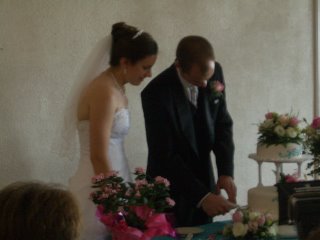Mark and I decided last minute to head out to Colorado for the week of Thanksgiving. We got to stay with Emily and Josh Stokes in Denver, while taking a few days to head into the mountains to snowboard. While we were there, we also got to hang out with Rudy, Paul Kind, Brook Smith, and a whole crew of people from the Quad Cities, including Jamie Walden, and the whole DeCoster crew [that so graciously included us in their fabulous Thanksgiving meal]. It was a blast, even though there was very little snow on the mountains yet. We were so thankful [no pun intended] for the good friends and the fun, refreshing times we had with each of them! I was really bad at taking pictures, so we don't have many. Mark says next time he gets to be in charge of the pictures so we actually come back with some :). Here are a few that we did take:
 Here we are at lunch...taking a break from the slopes at Steamboat Springs, CO.
Here we are at lunch...taking a break from the slopes at Steamboat Springs, CO. Em got to come and ski with us for a day. It was SO MUCH FUN, and I'm so glad she sacrificially made the 3 hours drive by herself up to Steamboat to do it.
Em got to come and ski with us for a day. It was SO MUCH FUN, and I'm so glad she sacrificially made the 3 hours drive by herself up to Steamboat to do it. Okay, so I stole this pic off of Paul's blog, but it was a really good one. This is the four of us jammed together in a gondola at Steamboat. We just saw them in South Dakota a few weeks ago, and even though they live 12 hours away, we got to see them again so soon! I love it when life work out like that!
Okay, so I stole this pic off of Paul's blog, but it was a really good one. This is the four of us jammed together in a gondola at Steamboat. We just saw them in South Dakota a few weeks ago, and even though they live 12 hours away, we got to see them again so soon! I love it when life work out like that! Yep...not much snow on the mountain. I kept making jokes about having to hike down. You sat in a gondola and looked out over a vast brown, grassy mountain. Luckily there was SOME snow on a FEW runs, and they continued to open up as days passed. It was still a mountain, so I can't complain.
Yep...not much snow on the mountain. I kept making jokes about having to hike down. You sat in a gondola and looked out over a vast brown, grassy mountain. Luckily there was SOME snow on a FEW runs, and they continued to open up as days passed. It was still a mountain, so I can't complain. Another view of the grassy runs from the gondola.
Another view of the grassy runs from the gondola. Em and Josh had baby bunnies at their house. They were SO CUTE and fuzzy, and would just fall asleep in your hands if you cuddled them right. This pic kind of looks like Mark is squeezing the bunny, but he's not :).
Em and Josh had baby bunnies at their house. They were SO CUTE and fuzzy, and would just fall asleep in your hands if you cuddled them right. This pic kind of looks like Mark is squeezing the bunny, but he's not :).















































